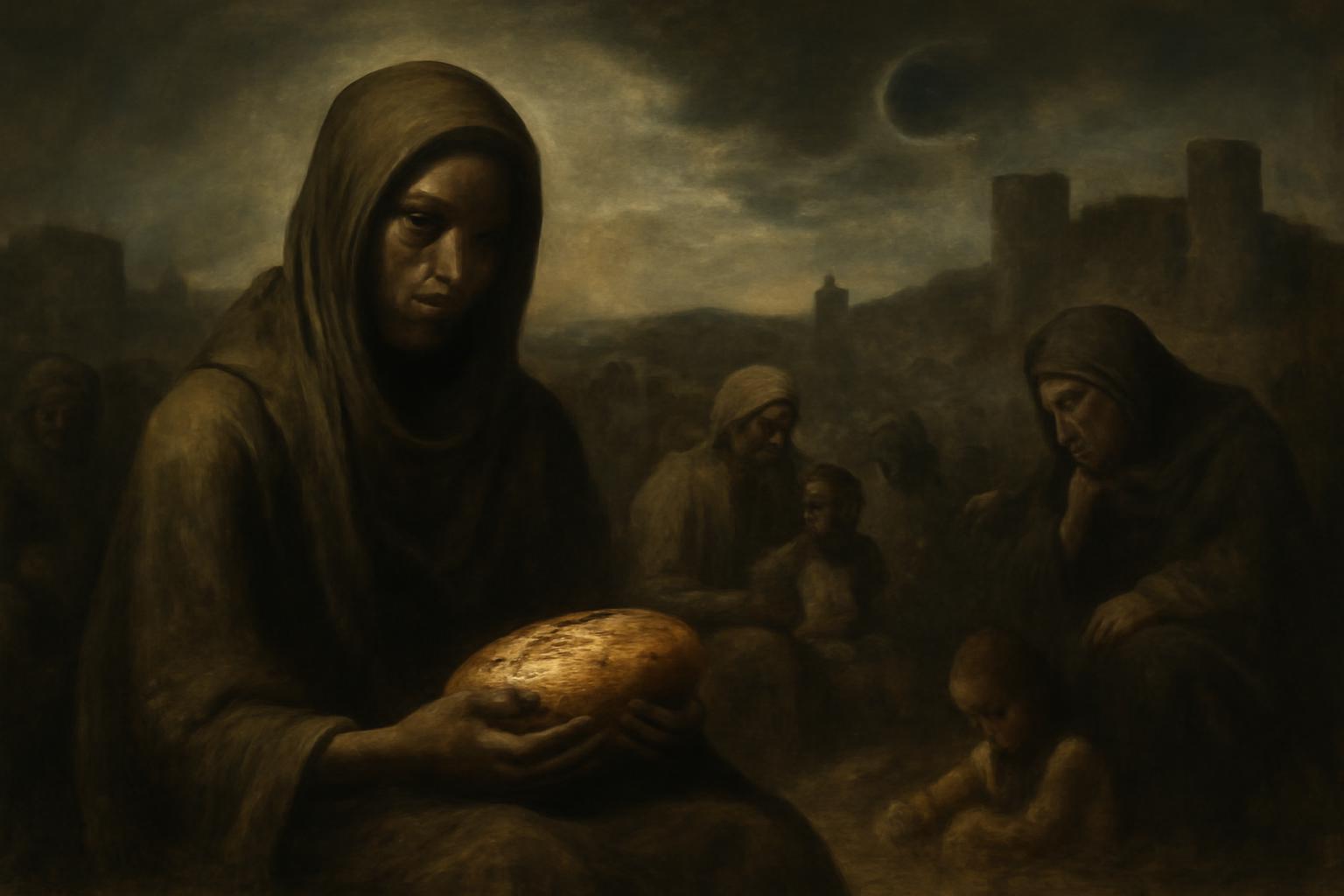Once more, the wheel of Fate turns relentlessly, grinding human hope to dust beneath the weight of its iron necessity. In El Fasher—a city now little more than a besieged graveyard for the living—mothers portion scraps of withered refuse, children gnaw at the husks of survival, and thousands tremble on the verge of annihilation. The air thickens with the scent of desperation; sustenance is reduced to animal fodder, waste, the leavings of a world that has forgotten its obligations. A city ringed by marauders, abandoned by the caprices of fortune and the impotence of international order, condemned to famine’s grim ritual.
Here, the ghost of tragedy walks with a clubfooted stride. To see the last stronghold of North Darfur wracked by privation, encircled and starved into submission, is to witness a spectacle worthy of Aeschylus, but stripped of catharsis. The United Nations—those tired shades of supposed guardianship—can offer only ghostly coins while prices ascend and the markets spiral out of reach. Epic hunger looms, indifferent, while the world averts its gaze, tending to flickering screens and contented distractions.
Nietzsche’s grave lamentation springs unbidden to mind: man is a rope stretched over the abyss. The besieged people of El Fasher cling to this fraying cord while the abyss yawns, and the “supermen” who would shape new destinies are nowhere to be seen. Instead, we see again the assertion of force over justice, appetite over spirit, and the slow asphyxiation of whatever dignity once animated the collective body.
All of this unfolds within a wider inferno: a civil war, merciless and interminable, carves through Sudan like Atē lays waste to the house of Atreus. Social order dissolves; millions, dislocated and exiled, wander a scorched plain—not heroes, but shadows cast by the failure of statesmen and the corruption of all noble intent. We flatter ourselves with the pretense of progress and humanitarian ideals, yet here the mask is torn away. This is the true countenance of modernity: not light, but darkness deeper than any Homeric night.
Each day, the sun sets with less promise, and tomorrow bends lower beneath the weight of despair. In times past, calamity might have inspired tragedy; now it only sinks us further into the slough of collective forgetfulness. The West’s grand narrative—of enlightenment, of reason, of the ever-upward climb—frays at the edges as we watch, supine, while famine and war unmake the world.
Thus the cycle repeats, and man, poised always on the precipice, finds himself abandoned by the old gods, mocked by faith in progress, and left to perish among the ruins, where bread becomes religion and hunger a more honest god than any we have worshipped.
